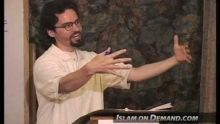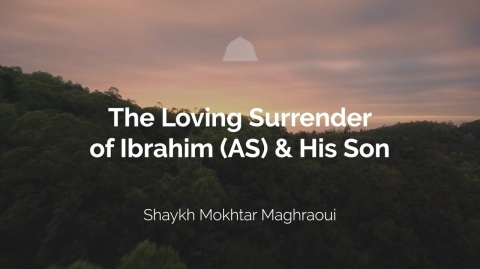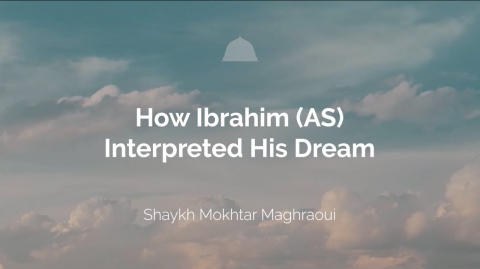How to Attain True Happiness & Satisfaction - Mokhtar Maghraoui (Pursuit of Peace Series: Session 2)
15 years ago
01:51:22
14,627 views
Download this lecture from iTunes: http://www.IslamOnDemand.com/283-287iod.html
This lecture is part 2 of a complete series of 5 lectures entitled "In Pursuit of Peace and Happiness":
1) http://www.youtube.com/watch?v=X-_He-8ZILI
2) http://www.youtube.com/watch?v=l-3dDwLSBuw
3) http://www.youtube.com/watch?v=07Dgqn4pVPo
4) http://www.youtube.com/watch?v=bDbC79Et-YE
5) http://www.youtube.com/watch?v=kyw2Jlk2cAM
We are the original producer of this video. Your purchase supports the production of new videos! See our catalog of lectures at http://www.IslamOnDemand.com
Islam's answer to the age-old philosophical question "What is the purpose of life?" is very direct, simple, and profound. Imam Mokhtar explains that, in essence, the purpose of life is to attain happiness. But what exactly is happiness? This is the first topic of discussion as the speaker defines happiness by looking at the basic instincts of the human being and the satisfaction of those instincts. Each part of our being (the eyes, the ears, the mouth, the stomach, etc.) have a nature which causes it to yearn for something. This nature also applies to the heart of the human being. But there are major differences between the heart and all our other faculties. The heart's origin, nature, desire, and satisfaction are all different and they serve as the fundamental elements which, if understood, the human being can attain true happiness. But the problem lies in the fact that most people are not aware of this path to attaining happiness because their heart is sick. Are we one of these people? Imam Mokhtar helps in diagnosing our heart by outlining the four states of the nafs (or the self) and ways in which we can determine which state, or states, apply to our own heart. He then encourages us to maintain a balance between the various states of the self so that attainment of happiness can be maximized. And then how do we stay on the straight path and maintain the happiness that may be attained? Other topics discussed: is fighting against the lower-self considered jihad?, the concept of guidance, tawheed, and practical ways to beautify the inner-self.
This lecture is part 2 of a complete series of 5 lectures entitled "In Pursuit of Peace and Happiness":
1) http://www.youtube.com/watch?v=X-_He-8ZILI
2) http://www.youtube.com/watch?v=l-3dDwLSBuw
3) http://www.youtube.com/watch?v=07Dgqn4pVPo
4) http://www.youtube.com/watch?v=bDbC79Et-YE
5) http://www.youtube.com/watch?v=kyw2Jlk2cAM
We are the original producer of this video. Your purchase supports the production of new videos! See our catalog of lectures at http://www.IslamOnDemand.com
Islam's answer to the age-old philosophical question "What is the purpose of life?" is very direct, simple, and profound. Imam Mokhtar explains that, in essence, the purpose of life is to attain happiness. But what exactly is happiness? This is the first topic of discussion as the speaker defines happiness by looking at the basic instincts of the human being and the satisfaction of those instincts. Each part of our being (the eyes, the ears, the mouth, the stomach, etc.) have a nature which causes it to yearn for something. This nature also applies to the heart of the human being. But there are major differences between the heart and all our other faculties. The heart's origin, nature, desire, and satisfaction are all different and they serve as the fundamental elements which, if understood, the human being can attain true happiness. But the problem lies in the fact that most people are not aware of this path to attaining happiness because their heart is sick. Are we one of these people? Imam Mokhtar helps in diagnosing our heart by outlining the four states of the nafs (or the self) and ways in which we can determine which state, or states, apply to our own heart. He then encourages us to maintain a balance between the various states of the self so that attainment of happiness can be maximized. And then how do we stay on the straight path and maintain the happiness that may be attained? Other topics discussed: is fighting against the lower-self considered jihad?, the concept of guidance, tawheed, and practical ways to beautify the inner-self.


 English
English Български
Български No filter
No filter











